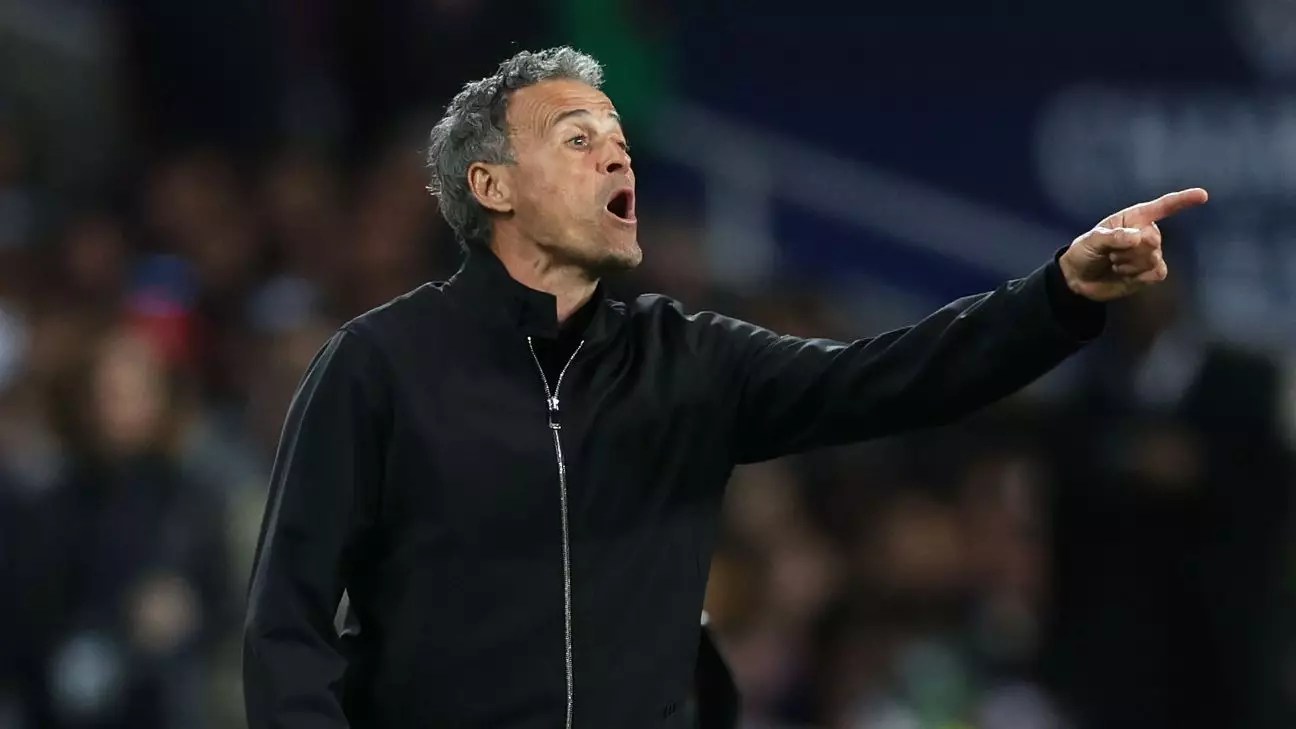The storied rivalry between Paris Saint-Germain (PSG) and FC Barcelona has been marked not just by thrilling matches but also by intriguing commentaries from players and coaches. As the modern football landscape evolves, the narrative continues to shift, leading to new interpretations of tactical strategies and team dynamics. Such was the case when former Barcelona player and PSG coach Luis Enrique shared his thoughts on Xavi Hernández’s Barcelona squad in a recent documentary, aptly titled “You have no f—ing idea.” Enrique’s observations reflect broader themes concerning football philosophy and the implications of tactical choices in high-stakes games.
Enrique did not hold back in his assessment, claiming that Xavi’s Barça displayed a style that resembled “long ball football like Eibar.” His criticism came in the context of their Champions League quarterfinals clash, where PSG initially lost 3-2 at home before staging an impressive comeback to win 4-1 in the return leg at Camp Nou. This was not just a comment on their recent performances; it unveiled deeper concerns about Barcelona’s tactical identity under Xavi, particularly regarding their ability to maintain possession and control over games.
Enrique’s assertion that “Barça aren’t guaranteed to dominate games” over the past two seasons speaks volumes. It brings to light the challenges Xavi faces in instilling a distinctive football philosophy that harks back to the club’s glory years, yet struggles against modern opponents who have adapted to their previous style. By comparing Barcelona’s tactics to that of Eibar, a team that typically operates with less flair, Enrique’s remarks challenge the very essence of what one traditionally expects from Barcelona—domination through intricate passing and ball control.
Delving deeper, one might consider the implications of Enrique’s observation regarding Barcelona’s defensive frailties. Enrique characterized their defense as lacking in quality, suggesting that while players can pack the defensive zones, they often do so without the necessary tactical acumen or skill. This critique is particularly poignant in the context of modern football, where defensive organization is crucial and teams are often punished by swift counter-attacks. His comments hint that without a solid defensive foundation, any attacking prowess becomes irrelevant, a reminder that equilibrium between offense and defense is crucial for success.
Moreover, his insistence that Barcelona’s goalkeeper, Marc-André ter Stegen, broke records for long passes underscores an essential pivot away from a cohesive ball retention strategy. Instead, it implies a reliance on quick transitions—perhaps a response to opposition pressure rather than a proactive game plan. Such an approach may yield short-term results, but it poses significant questions about longevity and sustainability within the broader context of La Liga and European competition.
In the documentary, Enrique’s interaction with Kylian Mbappé serves as a critical insight into his coaching philosophy. He encourages the French star to adopt a leading role and emphasizes the importance of defensive work as much as attacking brilliance. Quotes such as “Defend like a son of a b—-, lead by example” reflect the combination of intensity and personal accountability that Luis Enrique expects from his players. This blend of leadership and work ethic can be pivotal in high-pressure matches, reinforcing the idea that success hinges not just on skill but also on drive and a collective team ethic.
Furthermore, the tension surrounding Barcelona’s approach to Enrique’s possible return during the 2022-2023 season encapsulates the complex emotions intertwined within the football universe. Reflecting on this revelation only heightens the intrigue—Barcelona’s pursuit of a successful past contrasts sharply with present uncertainties, thereby threading through his narrative a sense of nostalgia as well as critique.
Through these insights, one grasps a holistic view of the evolving landscape in European football. Luis Enrique’s commentary serves as critical analysis, challenging prevailing narratives around both his former club and his current squad. With the interplay of tactical evolution, leadership expectations, and historical rivalries, the discourse surrounding teams like Barcelona and PSG will continue to reignite debates regarding the essence of football superiority in the modern age. The ultimate lesson from Enrique’s experiences is that the alignment of tactical execution with cohesive teamwork remains paramount—whether at PSG, Barcelona, or anywhere on the grand stage of European football.


Leave a Reply